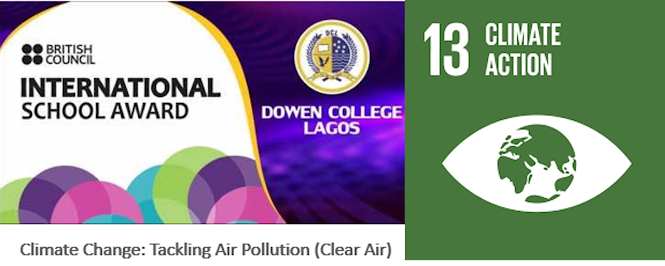Project 2: Climate Change: Tackling Air Pollution (Clean Air)
Aim/Description of Project:
The aim of the project is to allow students to study various pollutants which significantly impact air quality, food, and water, through a negative effect on the ecosystem and climate and proffering possible measures and solutions to reduce the effect and bring immediate climate benefits.
Areas under study include the USA, UK, China, India, and Nigeria (Lagos).
- Stage 1: The students were creating banners/posters
for their project
Youtube Link: https://www.youtube.com/watch?v=WmB4zHI0xQA
The students presenting their finished
project to the rest of their peers on the general assembly.
· Poster created by Korede Olubitan (SS
1A)
- Stage 2: Visitation to Multi-Soaps Industry, Bogije, Lagos.
Youtube
Link: https://youtu.be/hQi5gzF190g
·
Stage 3: Measuring the
amount of CO2 emission at the Lekki Phase I traffic

- Stage 4:
Zoom meetings with partner school – Greenfield School, India.
- First session:
Interactive session with staff of both
schools (Dowen College Lagos, Nigeria and Greenfield School, India)
discussing climate change and the scope of the project
YouTube page: https://youtu.be/wVcJOWMX9tA
- Second
session: The
students presented their slide at the zoom meeting held with a partner
school - Greenfield School, India.
















.jpeg)

.jpeg)
.jpeg)





well done for the work
ReplyDeletesee you soon
ReplyDelete